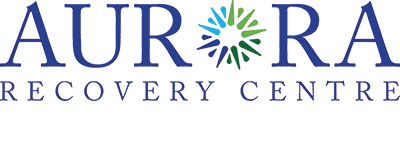Programs
At Aurora Recovery Centre we can help you grow in an ecosystem of understanding.
Obsessive-Compulsive Disorder (OCD) Treatment in Gimli, Manitoba

What is obsessive compulsive disorder?
Paying attention to detail and being organized are often considered admirable traits because they can help improve the quality of your work and minimize the risk of making mistakes.
If you display those traits, some people may joke that you have OCD, but obsessive compulsive disorder is no joking matter. As its name suggests, this anxiety includes both obsessions and compulsions, though it’s possible to have just obsession or compulsion symptoms. Most individuals with OCD experience more than one kind of obsession or compulsion.
According to the Canadian Association for Mental Health (CAMH) “Obsessions are intrusive thoughts that repeatedly surface. Often people with OCD will try to reduce the obsessions by acting out certain rituals.”
What are obsessions and compulsions?
OCD obsessions usually involve upsetting themes that are more-than-excessive concerns about real-life problems. Rather, they’re irrational worries that the person often realizes are not likely to happen and might even be nonsensical.
Compulsions, meanwhile, are intentional behaviours to try to reduce the anxiety brought on by the obsessions.
Excessive fear of getting contaminated by germs is an example of an upsetting theme someone with OCD might experience, and it may lead to someone compulsively washing their hands until they’re sore and chapped. However, the compulsions may offer only short-term relief from anxiety.
Obsessive compulsive disorder symptoms:
OCD often manifests as repetitive behaviours an individual feels compelled to carry out. Examples of obsessive behaviour among people with OCD include:
- Checking and rechecking to make sure a door is locked or something like the oven is turned off.
- Obsessive cleaning.
- Following strict rules of order, such as putting on clothes in the same order each day or organizing canned food by theme or size and becoming unsettled if the order is disrupted.
- Repeated handwashing, often until the skin becomes raw.
- Silently repeating a prayer, word or phrase.
- Counting objects, letters, words or actions.
Severity of OCD varies
Though OCD is most likely to appear in the teen or young adult years, it can begin in childhood and is considered a lifelong disorder. Symptoms often develop gradually and tend to vary in severity over the years, from mild and moderate to severe. The types of OCD obsessions and compulsions someone experiences can also evolve over time.
Causes of OCD
The cause of OCD isn’t fully understood, but research suggests it may be due to genetics and changes in the body’s own natural chemistry or brain functions. Obsessive fears and compulsive behaviours can also be learned, perhaps from watching others with OCD.
OCD risk factors
You may be wondering if you or a loved one is at risk of developing OCD. Having parents or other family members with the disorder could increase someone’s risk of developing OCD. Your risk may also increase if you’ve experienced traumatic or stressful events that may trigger intrusive thoughts, rituals and emotional distress. OCD may also be related to mental health disorders such as anxiety, depression, substance abuse or tic disorders.
Complications of OCD
The obsessive thoughts and compulsive rituals can become so excessive, disruptive and time consuming that they interfere with activities like work and school and strain relationships. People with OCD may experience health issues, like contact dermatitis from frequent handwashing.
Types of OCD
The media often portrays individuals with OCD as obsessively clean and afraid of germs. While that’s certainly true for some, there are numerous types of OCD. Examples include Harm OCD, which involves intrusive thoughts of inflicting violence onto oneself or someone else, and Sexual Orientation OCD, which involves obsessively questioning your sexual orientation and how others perceive it.
Individuals with obsessive love disorder may feel an overwhelming desire to possess and protect another person, which can lead to dysfunctional relationships and controlling behaviour.

Prevention and obsessive compulsive disorder treatment
While there’s no foolproof way to prevent OCD, treatments may help prevent it from worsening and disrupting activities and daily routines. It’s uncommon for someone to recover from OCD without some form of treatment, such as cognitive behaviour therapy, which can help individuals modify thoughts and beliefs that may reinforce obsessive and compulsive symptoms.
Recovery is a realistic and achievable goal for many people who suffer from obsessive compulsive disorder. Aurora Recovery Centre offers treatment options that can help bring your symptoms under control, so they no longer rule your daily life.
Recovery takes effort and practice, but our knowledgeable and compassionate team of professionals will be there to support and guide you every step of the way, so you enjoy the quality of life you deserve.
Frequently Asked Questions
Obsessive-compulsive disorder (OCD) is a mental health disorder that causes repeated, unwanted thoughts (obsessions) and urges to perform routines or rituals (compulsions). The obsessions can be distressing, and the compulsions are often done to try to reduce the anxiety caused by the obsessions. Common obsessions include fears of germs, contamination, illness, or harm. Common compulsions include washing hands, cleaning, checking things repeatedly, and ordering or arranging things in a specific way.
There is no cure for OCD, but treatment can effectively manage symptoms and improve quality of life. Treatment typically involves a combination of psychotherapy and medication. The most common form of psychotherapy for OCD is cognitive-behavioral therapy (CBT), which can help people learn to identify and challenge their negative thoughts and resist compulsions. Medications such as selective serotonin reuptake inhibitors (SSRIs) can also be helpful in reducing OCD symptoms.
No, OCD is not an addiction. Addiction is a brain disease that is characterized by compulsive drug seeking and use, despite harmful consequences. OCD, on the other hand, is a mental health disorder that causes unwanted thoughts and urges. While people with OCD may feel compelled to perform certain rituals, they do not experience the same cravings or loss of control that is seen in addiction.
The most effective treatment for OCD is cognitive-behavioral therapy (CBT), particularly exposure and response prevention (ERP). CBT helps individuals identify and challenge negative thoughts and resist compulsions, while ERP involves gradually facing obsessions without performing compulsions, reducing anxiety and the power of obsessions. Medications like selective serotonin reuptake inhibitors (SSRIs) can also help by increasing serotonin levels in the brain.
The cost of OCD treatment can vary depending on several factors, including the severity of your symptoms, the type of treatment you receive, and your insurance coverage. Individual therapy sessions typically range from $100 to $300 per session. Intensive outpatient programs (IOPs) can cost between $3,000 and $10,000 per month, while residential treatment centers range from $10,000 to $60,000 for a 30-day program. Costs can depend on the provider, location, and specific treatment plan.
Yes, OCD treatment is confidential. Your therapist is legally obligated to protect your privacy and keep your treatment information confidential. There are a few exceptions to this rule, such as if your therapist believes that you are a danger to yourself or others, or if you are court-ordered to receive treatment. However, your therapist will discuss any exceptions to confidentiality with you before they release any of your information.
The duration of treatment for OCD and addiction varies depending on the severity of the conditions and the individual’s response to treatment. Intensive treatment programs can last from a few weeks to several months. Inpatient programs often range from 30 to 90 days, followed by ongoing outpatient therapy that can last for several months to years. Long-term follow-up care, including regular therapy sessions and support groups, is essential for sustained recovery and relapse prevention. Recovery is an ongoing process that may require adjustments in treatment over time.
If you don’t get treatment for OCD, your symptoms may worsen over time. OCD can interfere with your daily life, making it difficult to work, go to school, or maintain relationships. In some cases, OCD can lead to depression, anxiety, or even suicidal thoughts. If you are struggling with OCD, it is important to seek professional help. Treatment can help you manage your symptoms and improve your quality of life.
GET HELP NOW
"*" indicates required fields
